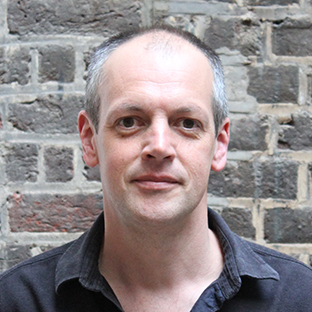I’ve been working at the RSA as director of education for a month now, so thought I’d use my first blog to offer some initial thoughts about the organisation and the job.
The first thing that struck me was the positivity that imbues the day-to-day life of RSA House. “Good morning Julian” said a smiling Carolina on reception, who I’d never met, at 9.00am on my first day. “Happy birthday to you” sang my new colleagues at my first staff meeting the following day. “Hi Julian, how are you settling in?” asked a succession of people whose names I couldn’t remember as I walked around the building trying not to look lost.
That I found all of this a little disarming – suspicious even – is unsurprising. I had spent the previous four years working as a Liberal Democrat advisor embedded in the Prime Minister’s office, deep behind Tory lines, and I still bear the psychological scars to prove it. Not because my Conservative colleagues were wicked people but because, no matter how decent they were, they were powerless to resist the destructive dynamics of the coalition within which we all worked. Because beneath the rhetoric about a new kind of politics, the fact remained that competitive requirements of our First Past the Post electoral system trumped the collaborative requirements of partnership government. Once the prospect of electoral reform had disappeared, everything the coalition did was shaped by a simple, stark and unalterable fact: that both the governing parties had to defeat the other if they were to survive. Needless to say, when you’re playing a game of political ‘kill or be killed’, goodwill, trust and a sense of shared mission are hard to build.
So it’s hard to overstate how nice it is to be working once again with people who aren’t actively trying to put me out of a job. But just as the negative aspects of working within the Coalition cannot be attributed to the malign actions of bad people, so, I would suggest, the positivity of the RSA cannot be fully explained by reference to the generous actions of good people. More likely is that the wave of positivity that hit me as I stepped into RSA House is itself a product of a complex set of institutional incentives shaped by the Society’s culture and rooted in its historic mission. And just as our ‘winner takes all’ electoral system demands and rewards confrontation and ruthlessness, so the RSA, as an organisation that exists to promote and celebrate creativity, depends for its success on a high level of collaboration and trust. After all, for most of us creativity is a fragile thing; if it isn’t nurtured and encouraged, it can easily die.
All this positivity has its limits, of course. “There’s no such thing as a bad idea” is a terrible idea which at least has the merit of disproving itself. But a recognition that not all new ideas will be good, and that if we are too quick to ridicule the bad we will end up snuffing out the good, is an essential precondition for creative flourishing. Experimentation and innovation are innately risky; a creative institution like the RSA should be seeking to manage, rather than eliminate, those risks.
If this is true for the RSA, it is doubly true for schools, where teachers strive every day to make that creative connection with their students that, if fed and sustained, will see them go on to fulfil their creative potential.
Yet few would argue that the way schools are currently managed, monitored, assessed and held to account is conducive to creative teaching and learning.
As a parent of two children at school in Hackney I am acutely aware of just how far we have come since the days when more than half of all local 11 year olds travelled out of borough each day to escape the likely fate of those who didn’t. The recent alumni of Hackney’s growing number of high-performing secondary schools (like millions of their peers elsewhere in the country) are today able to exploit opportunities that simply wouldn’t have existed had they been born 20 years earlier, as any credible critique of our education system needs to start by recognising.
But we must not allow the progress made to blind us to the collateral damage done by the blunt policy tools used to drive much of that progress. The narrowing of the curriculum, the teaching to the test, the gaming of the qualifications system, the subversion of the admissions and exclusions process, the tendency to focus on borderline pupils to the detriment of others – these and countless other distortions of professional practice and priorities reflect the extent to which the essential purpose of education has been subordinated to the proxy measures that determine a school’s position in a league table. That all these consequences were unintended does not mean they could not have been predicted. After all, perverse incentives always accompany the setting of crude administrative targets, especially when professional reputations and careers depend on successfully hitting them. And what I saw in the coalition and am seeing in the RSA is exactly what we are seeing today in our schools – people responding perfectly rationally to the incentives they face.
And it is with that thought in mind that I look forward to the task I have inherited from my predecessor, the brilliant Joe Hallgarten: to help broaden our shared understanding of what it means to be educated and to work out how a system designed to ‘mandate the good’ can be repurposed, and its incentive structure recalibrated, to ‘unleash the excellent’.

Be the first to write a comment
Comments
Please login to post a comment or reply
Don't have an account? Click here to register.